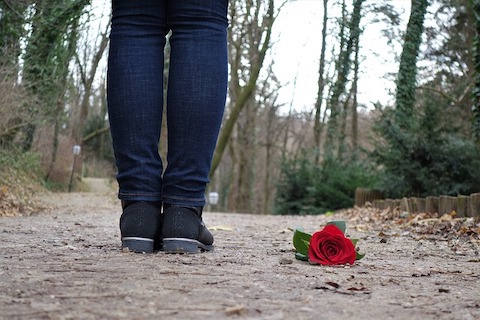Loving Yourself - Chore or Freedom?
By Dr. Margaret PaulJanuary 20, 2020
Are you resistant to doing your inner work and taking the loving actions on your own behalf?
 "Some people regard discipline as a chore. For me, it is a kind of order that sets me free to fly."
"Some people regard discipline as a chore. For me, it is a kind of order that sets me free to fly."
- Julie Andrews
How often have you said to yourself, "I have to take the time to do some Inner Bonding," or "I'd better do my Inner Bonding work."
If this is what you hear yourself say, it is your wounded self, trying to have control over getting you to do something that you think you 'should' do. Your wounded self likely sees Inner Bonding as a chore, something you 'have to' do to be okay. When this is your mindset about doing your inner work, then you might find yourself in resistance, because another aspect of your wounded self hates being told what you 'should' or 'have to' do.
The wounded self misses the point. Just as a diligent practice of playing the piano eventually gives you the freedom to play spontaneously, or the diligent practice of running gives you the freedom to run in a marathon, the diligent practice of Inner Bonding gives you the freedom to take loving care of yourself and bring yourself joy.
The Secret to Letting go of Resistance
The secret to letting go of resistance to practicing loving yourself - or practicing anything - is about finding the place within your essence that consciously wants the freedom and fullness that practicing Inner Bonding gives to you. As long as your mindset is focused on 'have to' rather than 'want to,' you will find yourself in resistance.
'Have to' generally comes from your wounded self, while a conscious 'want to' comes from your essence; your loving adult then takes the actions to bring about what you want.
The problem comes in when you believe that you want to do something, but you find yourself procrastinating. When this is the case, you need to explore more deeply, to discover the underlying subconscious ‘want to' of your wounded self that is causing your resistance.
For example, you might say to yourself, "I want to do an Inner Bonding practice every morning for 15 minutes." You do it for a day or two, but then it starts to fall by the wayside. When this is the case, it is because there is a deeper, subconscious 'want to.' Perhaps your deeper 'want to' is "I want to avoid the painful feelings that might come up during an Inner Bonding exploration," or "I want to sleep a little longer," or "I want to get things on my to-do list done," or "I want to avoid the failure of not doing it ‘right.’" There could be many other subconscious 'want tos' that are getting in the way of your conscious 'want to.'
How do you discover the deeper reasons for resistance?
By doing Inner Bonding! So here is the conundrum. You have to consciously 'want to' have the joy and freedom that taking loving action gives to you, more than you 'want to' avoid whatever it is you are avoiding. When it becomes truly more important to you to experience the fullness, peace, joy and sharing of love that can result from your Inner Bonding practice, then your conscious 'want to' will prevail.
This conscious 'want to' is not in your mind - it is in your heart and soul. Your wounded-self mind may continue to find many reasons to procrastinate. If you allow your mind to be in charge, rather than your heart, you will likely continue to stay stuck in various aspects of your life.
Discovering the 'want tos' of your heart and soul truly does lead to freedom!
Join Dr. Margaret Paul for her 30-Day at-home Course: "Love Yourself: An Inner Bonding Experience to Heal Anxiety, Depression, Shame, Addictions and Relationships."
 Send this article to a friend
Send this article to a friend  Print this article
Print this article  Bookmarked 0 time(s)
Bookmarked 0 time(s)
| Related Articles |
|---|
| Resistance to Being a Loving Adult |
| Inner Bonding as a Practice |
Comments
| Author | Comment | Date |
|---|---|---|
| Join the Inner Bonding Community to add your comment to articles and see the comments of others... | ||

Daily Inspiration
Mandy was my finest dog. In every visit in our memories she still teaches me. Loyalty is the finest part of being.
By Dr. Erika Chopich

 Share with Del.icio.us
Share with Del.icio.us Share with Digg
Share with Digg








